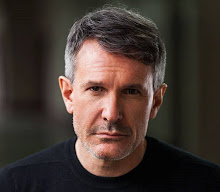Le PQ et la CAQ ont relancé cette semaine le débat sur le mandat de la Caisse de dépôt et placement : quel poids devrait-elle accorder au développement économique par rapport à la recherche du rendement ? Les deux partis proposent de rehausser le premier de ces objectifs concurrents. Madame Marois met l’accent sur les secteurs dits « stratégiques », monsieur Legault sur les ressources naturelles. Les deux s’entendent que la Caisse devrait bloquer les prises de contrôle d’entreprises québécoises par des sociétés étrangères. Leur but : retenir un siège social ou une usine ou protéger un réseau de fournisseurs.
Les grands oubliés dans ce discours, ce sont les contribuables qui ont versé l’argent que l’on veut ainsi réorienter : les travailleurs, employeurs et assurés des régimes de retraite (secteur public, RRQ, construction) et d’assurance (CSST, SAAQ), contraints par la loi de confier leur actif à la Caisse. Péquistes et caquistes soutiennent qu’une Caisse plus interventionniste ne nuirait pas au rendement des régimes. Mais si c’était le cas, pourquoi débat-on depuis 40 ans du dosage entre les deux objectifs? Pourquoi ne met-on pas carrément tous nos œufs dans le panier Québec ?
Selon les
interventionnistes, les déboires de la Caisse en 2007 (papier commercial) et en
2008 (effondrement boursier) seraient attribuables à la priorité accordée au
rendement depuis la réforme libérale de 2004. Argument fallacieux : ce
n’est pas parce qu’un événement se produit avant un autre qu’il y a un lien de
cause à effet. Cherchons plutôt à comprendre pourquoi les gestionnaires de la
Caisse ont accepté autant de risque dans la recherche du rendement optimal. Leur
modèle de rémunération y a possiblement contribué.
Le gouvernement dispose
déjà d’un autre outil pour participer au capital des entreprises:
Investissement Québec. Sauf qu’IQ gère un portefeuille d’actions d’à peine 1,4
milliard $ ; celui de la Caisse est d’environ 50 fois plus gros. D’où la
tentation des interventionnistes de jouer avec le gros magot.
Quand le
gouvernement veut accroître le capital d’IQ, il doit lui-même s’endetter
davantage. Si IQ essuie des pertes, ses résultats sont consolidés avec ceux du
gouvernement. Mais quand c’est la Caisse qui allonge son bras pour retenir une
entreprise « stratégique », le gouvernement n’assume pas le coût de
sa politique protectionniste. Quand un placement s’avère déficitaire, ce sont
les travailleurs et les assurés qui paient les pots cassés à travers leurs
cotisations et primes.
Il y a là un problème
de transparence et d’imputabilité. Si le PQ et la CAQ tiennent absolument à entrer
davantage au capital des entreprises, alors qu’ils proposent d’accroître les
moyens d’IQ. Nous verrons bien s’ils sont capables de convaincre la population
d’augmenter la dette directe à cette fin.
Alors qu’il a
fallu augmenter les cotisations des travailleurs, employeurs et assurés pour
recapitaliser les caisses de retraite et d’assurance, tandis que de grandes
cohortes de boomers partent à la retraite, ce n’est surtout pas le moment de
distraire la Caisse de son objectif de rendement. Laissons-là donc faire son
travail.



